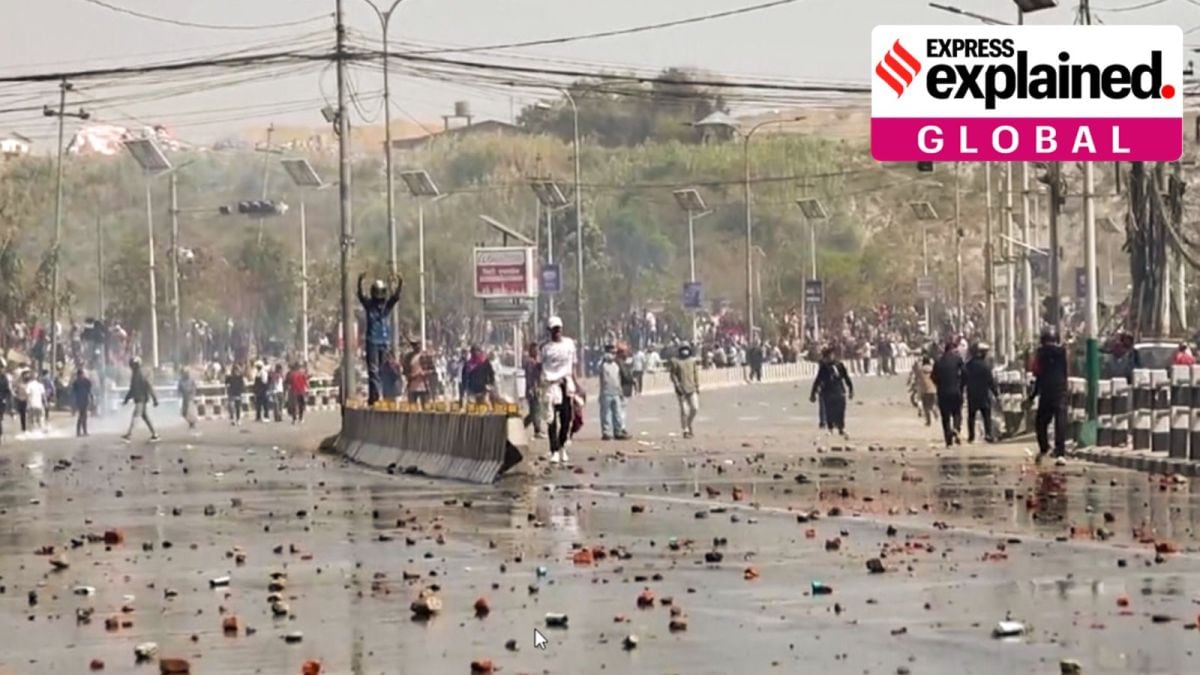Behind Nepal’s violent street protests: discontent with corruption and an unresolved social crisis
Forces opposed to the republican government are rallying around former King Gyanendra Shah, who has remained in constant touch with the people, and has suggested that a traditional society like Nepal needs the monarchy as a symbol of unity in diversity.

A monarch who lost his throne 19 years ago has turned into a rallying point for citizens angry and frustrated with the system, the constitution, and the leaders of the democratic republic of Nepal.
On Friday evening (March 28), the army was called out as supporters of the restoration of the constitutional monarchy swarmed the streets of Kathmandu, outnumbering the attendees of a rally of the Left Front, and clashing violently with police. Three individuals were killed, and 110 arrested.
On Sunday, MPs from the ruling coalition protested in the House of Representatives demanding the arrest of former King Gyanendra Shah. The pro-monarchy Rastriya Prajatantra Party dared the government to carry out the threat.
Genesis: The King’s call
The former King has not openly expressed a desire to return. He has confined his activities to issuing messages expressing concern over the situation in Nepal, the worsening economic scenario, and the flight of youths abroad in search of livelihood opportunities.
However, he has remained in constant touch with the people, and has mingled with them during pilgrimage tours in the country, and occasionally to India – perhaps trying to assess the extent of the support for him on the ground.
On February 18, eve of Nepal’s Democracy Day, Shah issued a customary message soliciting the people’s support for peace and progress of the country in a spirit of national unity and reconciliation.
But he also suggested that his quiet withdrawal from the Royal Palace, hoping that things would be better had not quite worked out, and that a traditional society like Nepal needed the monarchy as a symbol of unity in diversity.
Shah’s appeal, made from the tourist city of Pokhara where he was holidaying, received a huge response. As he returned to Kathmandu, thousands assembled at the airport and raised slogans like “Raja Aau Desh Bachau (Come back and save the country, O King)”.
Soon afterward, a committee to build a movement for the restoration of the monarchy was formed, and Friday’s rally was the first street action to that end.
Street violence and arrests
At Friday’s rally of the Left Front, held six kilometres away, two former Prime Ministers, Pushpa Kamal Dahal Prachanda of the Maoist Centre and Madhav Kumar Nepal of the United Socialists, warned Shah not to dream of reclaiming the throne, and advised Prime Minister K P Sharma Oli to arrest him.
Police, who had taken up positions at a private house, lobbed tear gas shells on the stage where senior leaders of the royalist rally, including its 87-year-old convener, Nabaraj Subedi, were seated.
Durga Prasai, the anarchist rightwing leader of the rally, drove his car towards Parliament House, ploughing through police barriers, and is currently absconding.
The mob attacked the party offices of Prachanda and Madhav Nepal after they demanded the arrest of the former King. Subsequently, Subedi was put under house arrest, and three other stalwarts of the movement, Dhawal Shumsher Rana, Rabindra Mishra, and Swagat Nepal, were arrested. Some of the arrested leaders were produced in court in handcuffs on Sunday.
Anger against corruption
Friday’s incidents appear to indicate that public anger against widespread corruption and the alleged scams in which almost every Prime Minister and senior politician is seen as being involved, is boiling over, and getting organized.
It has been a practice since 2006 to grant immunity to politicians against investigation if a “policy decision”, which is essentially a decision by the cabinet, is taken to that effect.
* Prime Minister Oli faces a contempt case for violating a Supreme Court order against converting a tea estate into commercial plots.
* Three other former PMs, Madhav Nepal (2009-11), Baburam Bhattarai (2011-13), and Khil Raj Regmi (2013-14), are accused in scams to give government land to private individuals.
* Complaints are pending against three-time PM Prachanda for allegedly making billions by diverting money meant for Maoist guerrillas when they were kept in UN-monitored cantonments during the peace process that began in late 2006.
* Five-time PM Sher Bahadur Deuba is accused of taking illegal commissions in the purchase of aircraft, and his wife Arzu Rana Deuba, currently the foreign affairs minister of Nepal, has often faced questions in Parliament about her alleged role in fraudulently turning Nepali citizens into Bhutanese nationals on paper, and sending them to the United States as “refugees”.
It is widely believed that the collapse of the republican experiment and a return to Nepal’s former monarchical system could lead to an investigation of the alleged misdeeds of all these politicians, and likely trials and convictions.
However, Friday’s street protests indicate that the refusal to negotiate with the monarchist may only prolong the social conflict that has wracked Nepal since the mid-1990s. The pro-republic forces may be forced to course-correct and hold a dialogue with these groups.